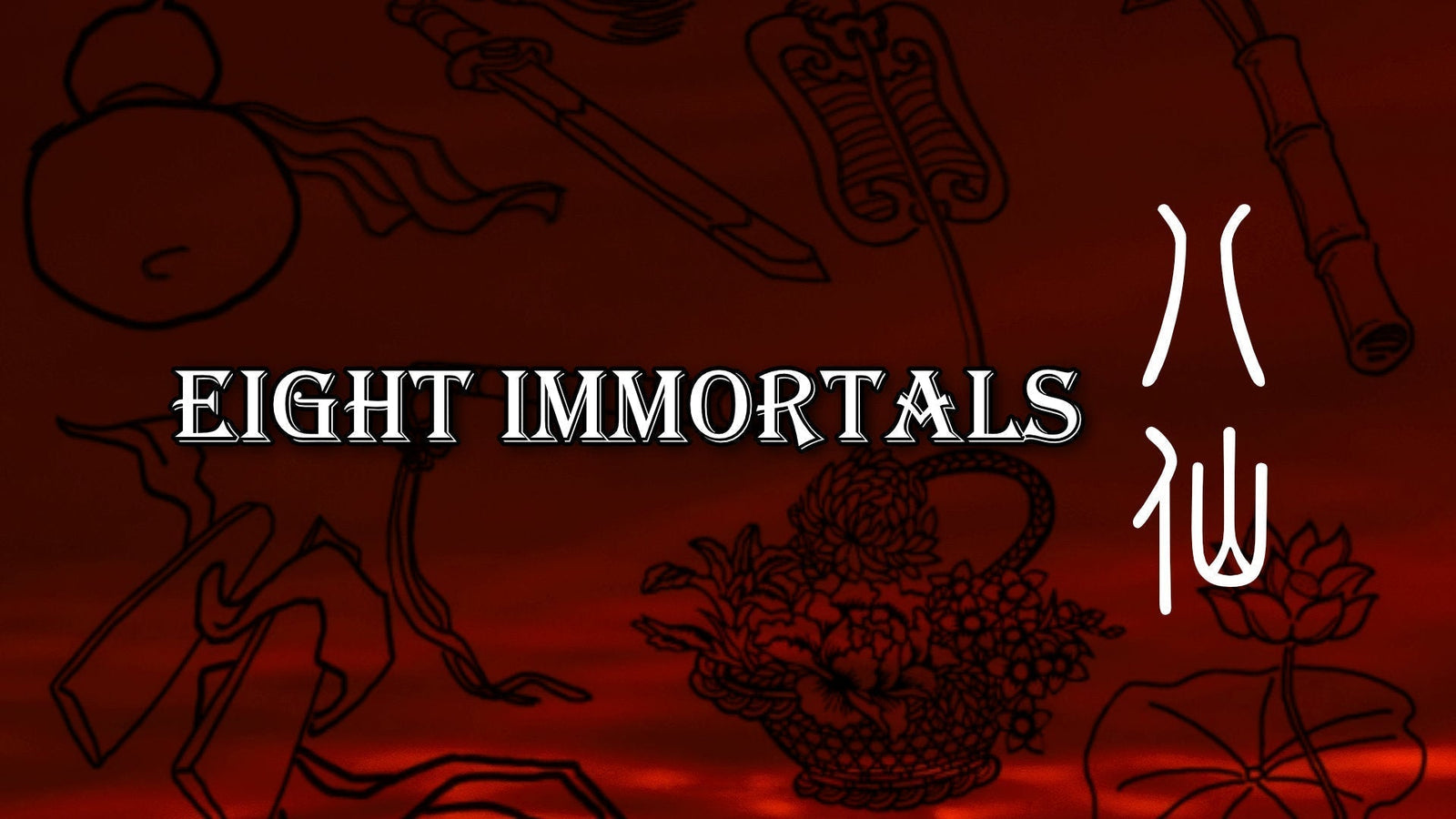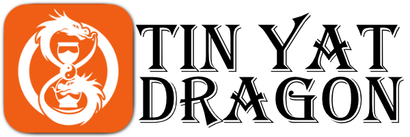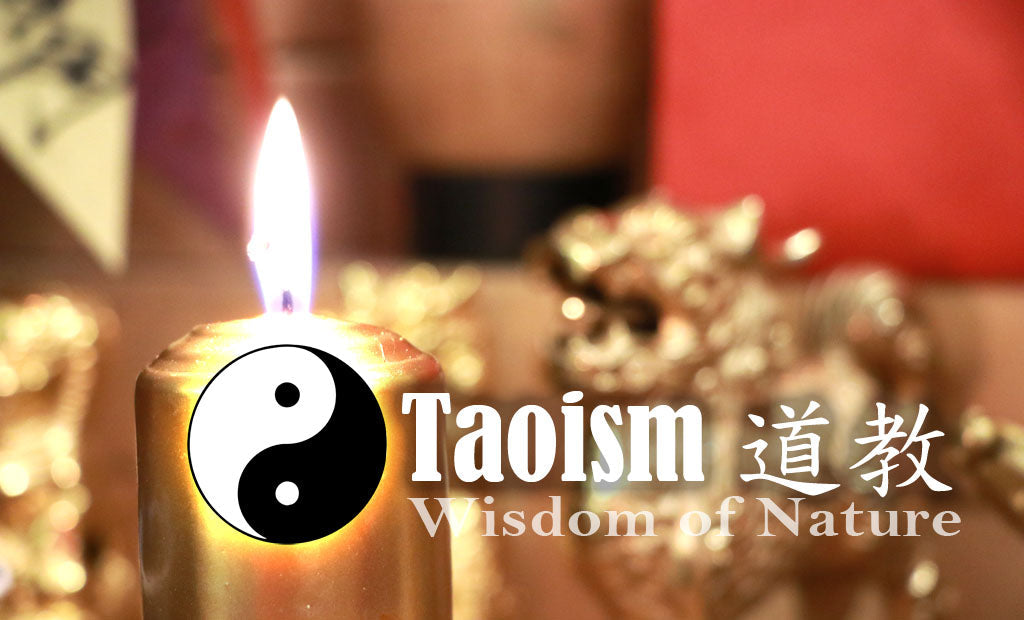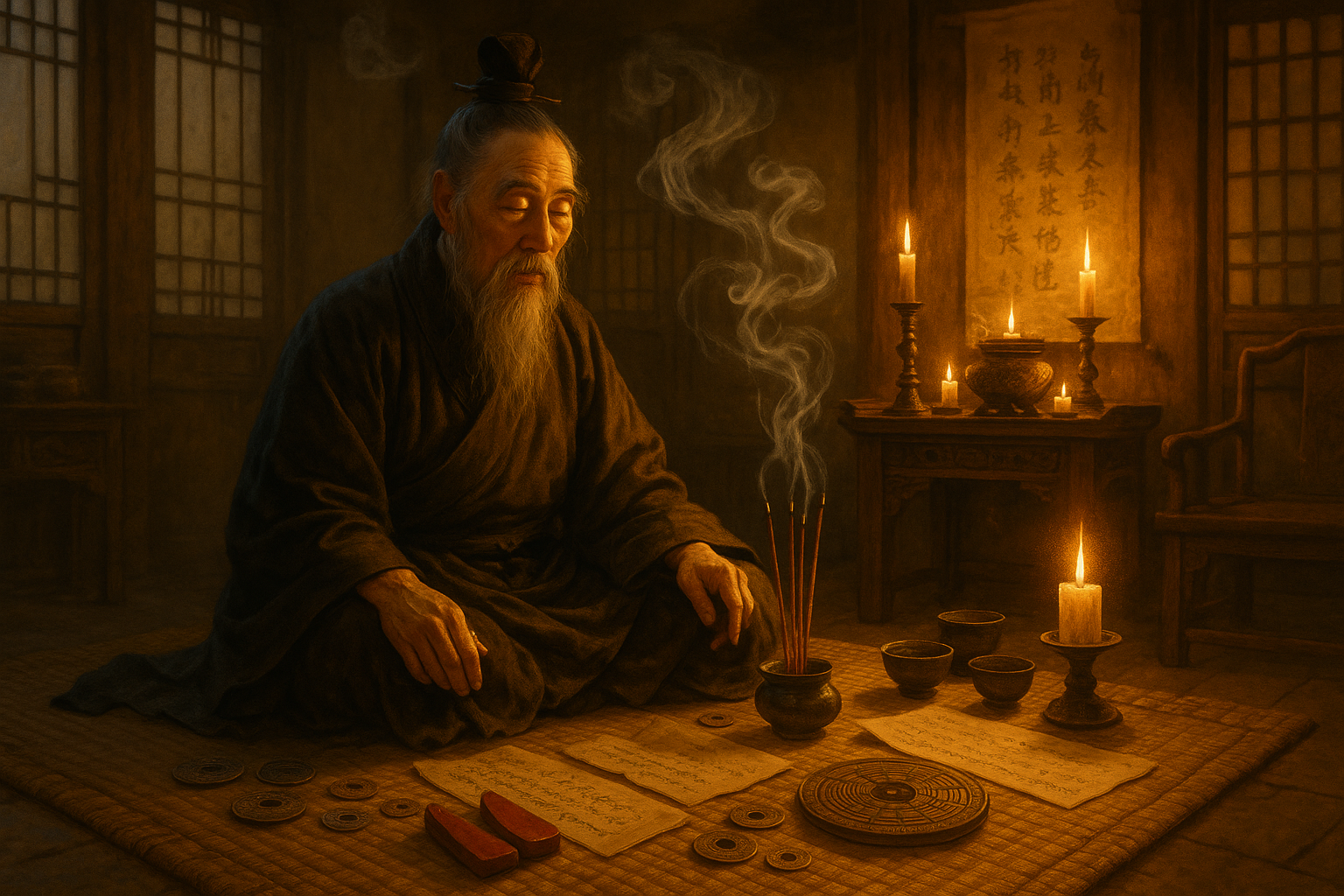
When most people hear of the Eight Immortals (八仙), they think of Chinese folklore, old paintings, or Taoist legends told in the temples. In our Tin Yat Lineage, the Eight Immortals are not just stories or symbols. They are real deities of the Religious Court, and they can be summoned through our altar to help us in magic work.
We do not see them as distant figures of myth. They are living forces of the Tao, assigned specific duties to empower us. Each Immortal carries a unique tool, and each one represents a function that is vital for altar work. Together, they form a complete cycle of support, making the altar strong and effective.
In our lineage, when we talk about 八仙過海, it is a metaphor for calling the Eight Immortals to descend to our local altar. They “cross the sea” to come to us. When we talk about 八仙賀壽, it is a metaphor for sending them back to the Religious Court after they have completed their task, reporting the success of their work.
The 八仙咒 (Eight Immortals Spell) is the text we use to summon them down. Let’s go through it and understand what each Immortal brings.
Jung Lei (鍾離) – The Fan of Invitation
鍾離寶扇搖又搖,諸天神明到壇前。
Jung Lei waves the magic fan, and by this action he brings the gods of Heaven down to the altar. His fan is the sign of invitation, the gesture that opens the altar and calls for divine presence.
Without Jung Lei, the altar would remain quiet and empty. He is the one who brings the guests in, ensuring that the powers from above descend to begin the work.
Gwoh Lo (果老) – The Drum of Mobilization
果老魚鼓敲水道,急摧兵馬下靈泉。
Gwoh Lo beats the fish-drum, and its sound shakes open the channels of the water realm. His beat is not for music — it is a signal to the divine soldiers. At once, the heavenly troops are urged to rush down like a flood of power.
His role is to mobilize. When the altar needs reinforcement, when the gods must be moved quickly, Gwoh Lo is the one who calls them to action.
Choi Woh (采和) – The Basket of Treasures
采和花籃金玉聚,財源不絕萬家興。
Choi Woh carries the flower basket, but what he gathers are not just blossoms. His basket collects treasures, gold, and jade — resources of wealth and power. With him, fortune flows and blessings spread, empowering all the altars and households that connect to him.
Choi Woh’s role is to gather. He draws in wealth, magical energy, and resources from above, filling the altar with supplies for its work.
Dung Bun (洞賓) – The Sword of Command
洞賓寶劍五雷令,神光毫現破萬邪。
Dung Bun wields the sword that carries the decree of the Five Thunders. His sword is the authority of Heaven, flashing divine light to break through all evils.
He is the commander. When the gods need to act, when the forces must execute their duties, it is Dung Bun who issues the order. He is the enforcer of the Tao’s law.
Sin Goo (仙姑) – The Lotus of Support
仙姑蓮花水中生,飄香不絕力綿綿。
Sin Goo raises the lotus that grows pure out of the waters. The fragrance spreads without end, and with it comes a gentle but enduring strength.
Her role is to supply power. She nourishes the altar troops with the energy of the local and the inner systems. Where others may fade, she provides continuous support so the work does not weaken.
Gwok Kau (國舅) – The Tablet of Petition
國舅玉板通陰陽,天地靈靈奏天書。
Gwok Kau presents the jade tablets, a court document that bridges Yin and Yang. With them he makes the formal petition to Heaven, reporting on the altar’s request.
He is the messenger. Without him, the altar’s work has no official channel to the higher courts. He ensures that the communication flows both ways, and that the Religious Court above receives the altar’s word.
Sheung Ji (湘子) – The Flute of Manifestation
湘子玉笛吹仙音,靈光片片萬般生。
Sheung Ji plays the jade flute, releasing immortal sounds. Each note transforms light into chi, and chi into countless forms of life.
His role is to refine and manifest. Where there are inspirations, he gives them form. Where there are plans, he makes them real. Through him, the altar’s intention takes shape in the world.
Gwaai Lei (拐李) – The Gourd of Essence
拐李葫蘆龍元酒,法力無邊顯威靈。
Gwaai Lei holds the gourd of dragon essence wine. From it flows unstoppable divine fire, spreading power without end.
His role is to refine and store. He takes the blood of the gods who return from their duties and transforms it back into essence. This essence is preserved, strengthening the gods for the future. His gourd is the vessel of everlasting fire.
The Work of the Eight Immortals
When we recite the 八仙咒, we are not just chanting names. We are calling down real deities from the Religious Court. They arrive at our altar and empower us with their eight functions:
- Invite
- Mobilize
- Gather
- Command
- Support
- Communicate
- Manifest
- Refine
This is what makes our altar alive. The Eight Immortals do not stand apart from our practice — they are an active team, guardians who help us achieve results in magic and Taoist work.
When we say 八仙過海 Eight Immortals Crossing the Sea, we are calling them down to help. When we say 八仙賀壽 Eight Immortals Celebrating the Birthday, we are sending them back with honor, their duties completed, their work recorded in the court above.
Summoning the Eight Immortals Separately
Besides calling all Eight together, we can also summon each Immortal separately with a FU talisman. This allows us to use their specific power directly, either as an empowerment or as a guardian set into the altar.
- Jung Lei with the Fan – His FU can be used to invite gods from above. With this empowerment, you can summon deities into the altar or into objects as needed.
- Sin Goo with the Lotus – Her FU can be used to boost power for troops, nourishing them and sustaining their strength.
- Dung Bun with the Sword – His FU can be used to command, execute, and drive away evil.
- Choi Woh with the Basket – His FU can be used to bring in wealth, blessings, and resources.
And so on, each Immortal can be summoned through their FU to do the exact work tied to their tool and function. This makes the Eight Immortals a very practical set of helpers in magic.
Symbols on Robes
In our lineage, the Eight Immortals are also built into our robes and magical clothing. The symbols of their tools — the fan, flute, lotus, basket, sword, and so on — can be embroidered or marked on the robe.
When we consecrate the robe, we also burn the FU talismans into these symbols, setting the Immortals inside the robe. This way, the robe is no longer just fabric — it carries the presence of the Eight Immortals within it.
When the Taoist wears the robe, the Immortals empower them directly. The fan, flute, lotus, sword, and other symbols are no longer only decoration; they are living seals that give the Taoist constant empowerment and protection.
八仙過海 and 八仙賀壽
- 八仙過海 – This is our metaphor for summoning the Eight Immortals down to the altar. They “cross the sea” to arrive locally and do their work.
- 八仙賀壽 – This is the metaphor for sending them back to the Religious Court once their duties are complete. It is the respectful return, reporting success and closing the cycle.
Conclusion
The Eight Immortals are more than ancient figures of legend. In Saam Law Taoism, they are working gods, ready to be summoned, ready to serve. They each carry their tool, they each fulfill their role, and together they complete the cycle of power that keeps the altar functioning.
Every time we use the 八仙咒, we are reminded that the Tao provides us with everything we need: order, force, wealth, command, nourishment, communication, manifestation, and refinement.
This is the power of the Eight Immortals in our lineage.


